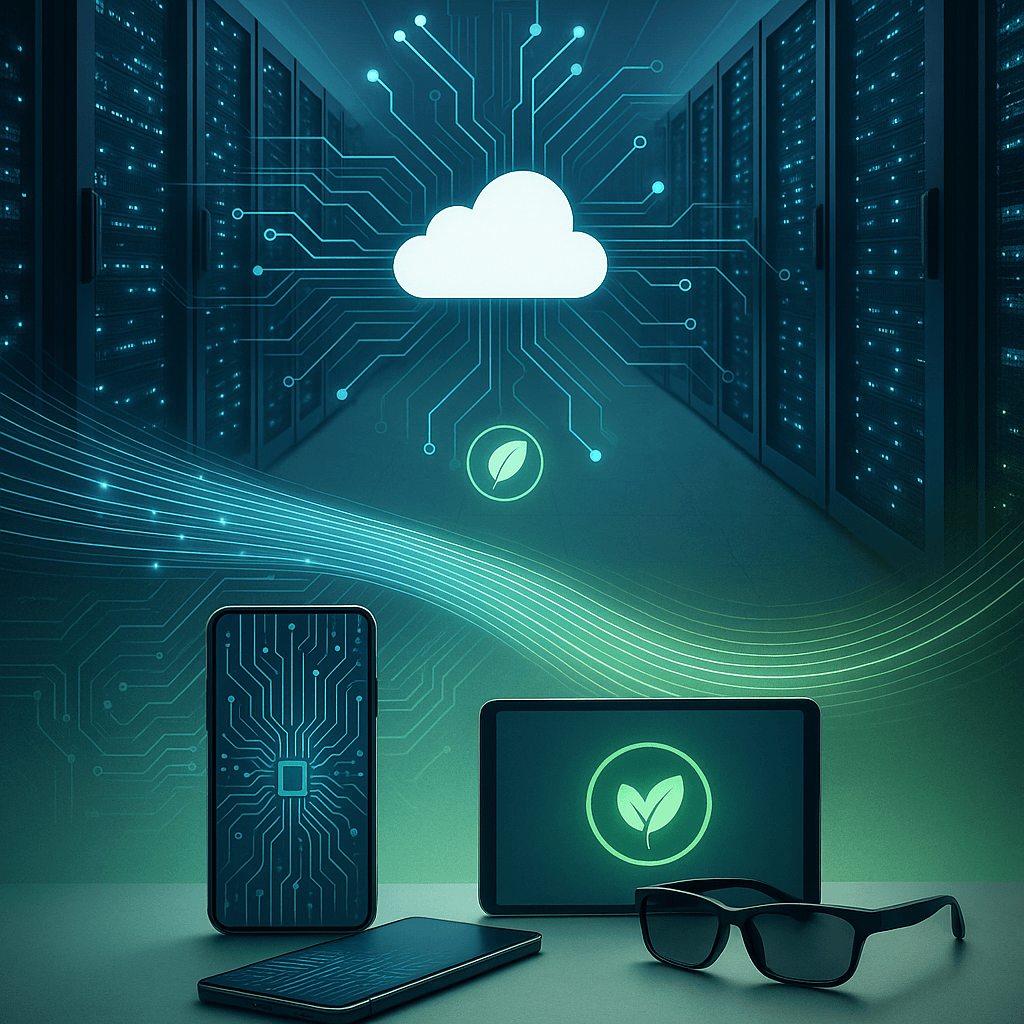Arm Holdings CEO Rene Haas just dropped a reality check on AI's power consumption crisis. In a CNBC interview Wednesday, he argued that moving AI workloads from massive data centers to local devices - phones, computers, smart glasses - represents the industry's best shot at sustainable AI deployment. His timing couldn't be better, coming as his company announced an expanded partnership with Meta to optimize AI across both cloud and edge computing.
Arm Holdings just threw down the gauntlet on AI's energy crisis. CEO Rene Haas told CNBC's Jim Cramer Wednesday that the industry's obsession with cloud-based AI is heading for a sustainability wall - and his company has the blueprint to fix it.
"A large number of multi-gigawatt data centers won't be sustainable" over time, Haas said during the interview. His solution? Move AI inference - the process of running trained AI models - away from power-hungry data centers and onto the chips inside everyday devices.
The timing of Haas's comments wasn't accidental. Arm and Meta announced Wednesday they're expanding their partnership to "scale AI efficiency across every layer of compute," sending Arm stock up 1.49% by market close. The strategic alliance spans both data center infrastructure and the software stacks that make it all work.
Haas's pitch centers on a fundamental distinction that's getting lost in AI hype: training versus inference. While AI training - the computationally intensive process of teaching models - will likely stay in the cloud, inference can happen locally. "Moving those AI workloads away from the cloud to local applications" represents one of two key vectors for sustainable AI, alongside developing the lowest-power cloud solutions possible, he explained.
The strategy isn't theoretical. Meta's new Ray-Ban Wayfarer glasses already demonstrate this hybrid approach in action. When users say "hey, Meta" to activate the AI assistant, that voice recognition happens entirely on the glasses themselves, powered by Arm chips. Only more complex queries get routed to the cloud.
"That's not happening on the cloud, that's actually happening in your glasses, and that's running on Arm," Haas told Cramer, highlighting how edge AI can reduce both latency and power consumption.












